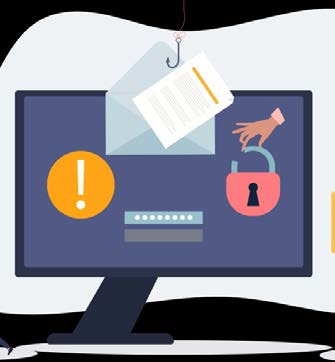 In today’s super-connected online world, it’s hard to avoid the risk of identity theft, scams, and fraud. But there are ways to minimize risks and stay ahead of thieves who want your personal information.
In today’s super-connected online world, it’s hard to avoid the risk of identity theft, scams, and fraud. But there are ways to minimize risks and stay ahead of thieves who want your personal information.
Know the risks. Nearly 30% of Americans have been impacted by identity theft in the last year. This included fraudulent credit or debit card charges, takeover of social media or email, and credit cards or loans opened in their name.
Use credit card protections. Using credit cards can limit your cash liability. Federal regulations protect you against credit card fraud and limit your maximum liability to $50. Some card issuers expand that law by offering $0 fraud liability on unauthorized charges. You have 30 days to report fraud, so regularly review your statements. Report any unauthorized purchases immediately. Watch your credit report for unrecognized cards or loans.
Delete suspicious emails. Don’t let them get your personal information. Before clicking links in email, check for typos, misspellings, or other red flags. Scam emails might say they’ve noticed some suspicious activity, there’s a problem with your account, or that you’re eligible to register for a government refund – but it’s all fake. Clicking could download malware or worse. Giving them your personal info could lead to identity theft.
Hang up the phone. Fraudulent phone calls are the top contact method for fraud for people ages 70 and older. The most common scams include business imposters, tech support scams, prizes, sweepstakes, lotteries, and government imposters. If you receive an unsolicited phone call from a company you don’t know, don’t hesitate to hang up or ask them to mail you information. Even if the caller seems familiar, be careful about giving out personal information over the phone. This includes your checking account information, credit card numbers, and Social Security number. Legitimate business callers should already have that information on file, but scammers want it to steal your identity.
Hopefully you’ll never be a victim of fraud, scams, or ID theft. If you are, you can find more resources online at Fraud.org, ReportFraud.ftc.gov, and IdentityTheft.gov.

































